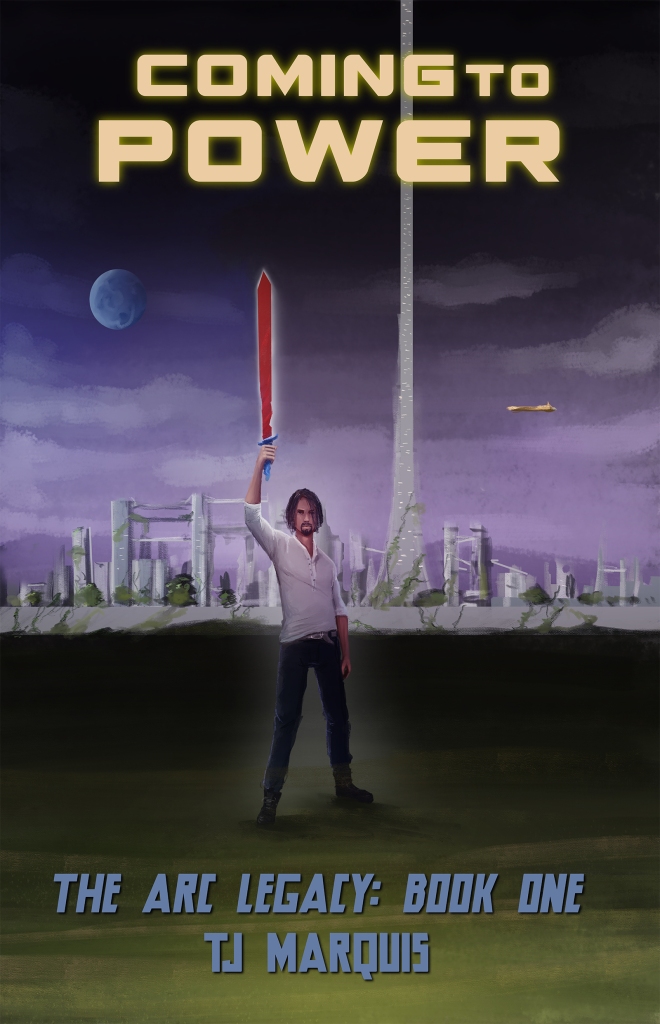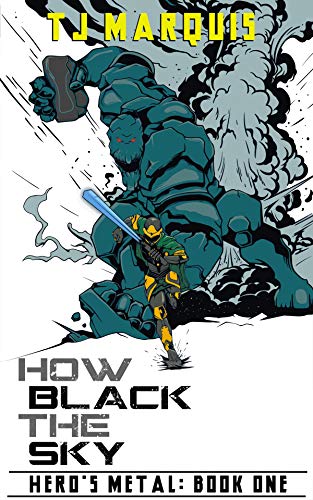It’s easy enough to just say those words, let the mind casually work out the implications, and say, ‘Oh, neat.’ But I think there’s some value in treating one’s writing as a simulation deliberately.
Let’s explore how I got to this view.

My first completed novel was Coming to Power. This was my, “This novel is so important to me/It has my soul in it/Why haven’t I finished it yet” novel. Many of you know what I’m talking about. I’m almost embarrassed to say how long it took to find the discipline to finish, but part of what I want to do with my blogs is to be transparent. 20 years… Yes. Eek.
During that time I wrote half the novel, including scrapping the beginning perhaps 4 times. Of course the writing was awful, but thanks to the #pulp in all of us, the basic plot was solid fun. Then I lost half my possessions to stupid stuff, including the handwritten half manuscript.
Stirred but not shaken, I started over. It was better this time. So much emotion! A better beginning! Purple, purple words in green ink over five hundred handwritten pages and too many years. Then, complete. Steak dinner and self-congrats.
A little more time passed, me knowing I needed to sit and start transcribing. When I did… well, a lot of it was just kind of wonky. Shifting styles, jumbled themes, leftover silliness. It seemed that a rewrite was in order.
It was better this time. Real emotion! Just enough purple to match some of my favorite authors without seeming lame. Tighter plot, clearer themes.
I pored through the handwritten copy to compare and make sure no nuggets were lost. A few were and I smelted them into the mix. But the main thing I noticed was this: running the characters, setting and various variables and parameters through my particular brain, even years removed, I hit the same beats (the important ones anyway) and the characters even said the same things, if sometimes with different words.
It was then I began to realize I was running a simulation in my head. If the seed was slightly different but the input was the same, my personal procedural world was destined to look somewhat alike in each new iteration. The characters had the same AI, so they were likely to move about in similar ways. It was just a different way to get from A to B to C.
I do a lot of freelance work, mostly consulting with new authors to help them break through perceived walls and learn tools they need to be self-sufficient, but also world-building that’s essentially me ghostwriting. Going through this process a few hundred times has further solidified my perception of writing as simulation.
A client passes me parameters, sometimes a partial outline, sometimes a premise, sometimes hundred-page messes of notes I have to mine for goodies, and occasionally just a prefab book cover. I feed the data into the me-machine. Following the procedural generation rules written in my brain, the world spins out in a sensible way until it becomes real, and then, complete.
If you pass the same data into the same machine, you get a similar result every time. It might be the same if humans were more machine than man (twisted and evil) but since we’re not, Ian Malcom’s chaos theory goes to work and the resulting sim is only 90% identical and not 100.
So this is a distillation of my perception of the matter, but what good does it do everyone else? Well, I think it helps as you write, outline, or worldbuild to view the project as a simulation, especially if you come up against road blocks.
Stuck on a chapter? That’s because you’re missing a variable or function somewhere that will create tension or provide the solution that will move the narrative forward.
Story not working? That’s because you’ve got mismatched or corrupted data, or possibly just a bad seed.
How do I know? Because I’ve been through it.

If one of the three of you has been following, you may have seen me mention that Hero’s Metal book 2, Out of the Deep, has not been playing nice and has actually set me off my schedule by two months. I pushed through to push through, but I’m now 95% certain I will have to rewrite from the beginning. I hate this, but I believe it must be done, and now I know that the result will be far superior to the current state.
The problem? Corrupt data and a seed that’s nearly right but not quite there. The solution? Purge the corruption, adjust a few variables, reset some constants, and start the sim over. Do I want to do it, no. Will it pay off? I think it will.
So I’d like to get crunchier with this metaphor, perhaps to the point of drawing it out into a proper PROCESS, but I think the thoughts are enough for now.
Ruminate on it and let me know what you think! For now, back to simulating.
If you’d like to see the result of my long hours of crunching data so simulate far-off magical worlds, check out these fine novels:

No comments:
Post a Comment